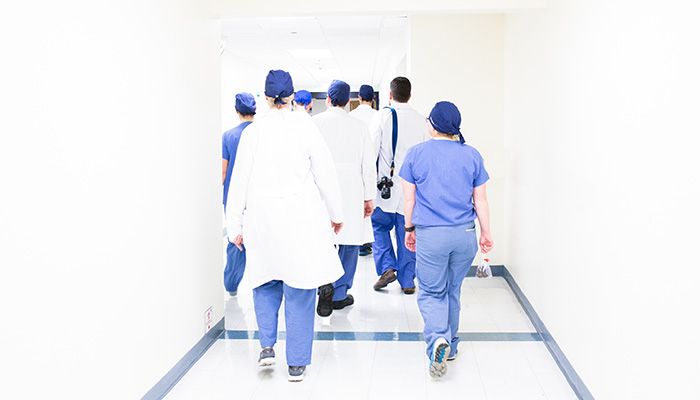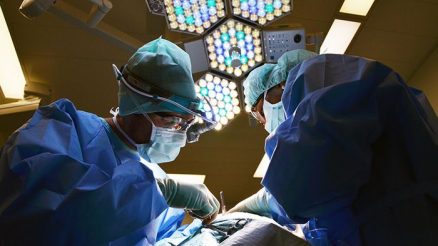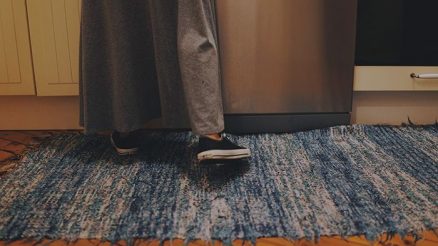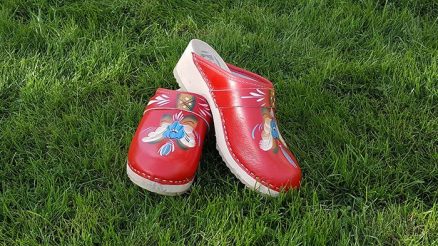
Among some of the many tools and resources that surgeons use, shoes may be the last thing the average person thinks about being an immediate concern in the operating room. However, if you are a surgeon, then you know just how crucial and valuable a good pair of shoes can be. Surgeons spend hours on end working and walking in rotating shifts, as well as long hours standing in one place during an operation. When in the middle of an operation, the last thing a surgeon should have to worry about is the comfort of their feet.
What Type of Shoes Do Surgeons Wear?
Surgeons need to be able to rely on their shoes so that they can stay focused on their work, especially when that work is the health of other people. The most common styles you’ll find on a surgeons foot include slip-ons, clogs, and athletic shoes.
Surgeons favor slip-on shoes because they are very easily accessible in the operating room. The surgeon doesn’t have to worry about tying laces or even having to touch the shoe to pull it on or off. This allows the surgeon to keep their hands clean after sterilization, and can even allow them to slip them off quickly while working to let their feet stretch out a bit and breathe during long operations, without having to worry about sterilizing their hands again.
Clogs are a great option, as their design is focused on functionality and comfort. Most clog shoes are made with comfortable heel cushions, anatomically correct footbeds, large toe boxes, and many come with a seal of approval from the APMA, depending on the brand. Medical clogs are made to support the wearer’s posture, keeping their legs and back comfortable for many hours at a time.
Many clogs are made with rocker bottoms, which allow for fluid walking motion and help propel you forward.
Some clogs also contain a stiff sole and do not flex while you’re walking. This is used to accommodate for the natural movement of your feet while walking, and to prevent rubbing on the back of your foot. Because the sole is stiff, your heel will naturally slip up and down while walking.
Another aspect of the clogs design is the firm heel counter, and its shape does not curve towards the heel like other shoes. This design allows the natural slipping of the heel up and down and prevents rubbing from occurring.
Clogs are also designed to have some wiggle room in the toe area, meaning that your toes should not feel cramped. Your foot should fit more snugly around the instep and ball of the foot.
Wearing clogs for the first time may feel a little strange, as they do not fit or feel like most other shoes. However, the unique design and shape allow for excellent support and range of motion, allowing you to stay comfortable on your feet for longer periods of time.
Athletic shoes are also a great option that surgeons often wear in the hospital, especially walking shoes. They are made to be very comfortable for movement, while also providing plenty of stability. They are also usually lightweight, taking the strain off the wearer’s legs. They are also made with plenty of cushioning and shock absorbance, meaning the wearer can stay on their feet longer.
Why Do Surgeons Wear Crocs?
Crocs are extremely popular among medical staff, and it’s not to make a fashion statement. Crocs are well known in the operating room because they are very easy to clean, and are resistant to stains. Surgeons are periodically exposed to a variety of bodily fluids from patients, which can often end up the ground, and of course, shoes. Crocs can be rinsed off and quickly dried if they’re exposed to some unwanted fluids, making them popular among hospital staff, especially surgeons.
Are Surgeon Shoes Slip Resistant?
Surgeon shoes are slip-resistant, which is crucial in an environment like an operating room. There are a variety of ways the floor could become slip resistant with many different liquids, ranging from water and different medical fluids, as well as bodily fluids such as blood. Having slip resistant shoes ensures that the surgeon can stay safe and stable during an operation, and stay focused on their work.
What to Look for in Surgeon Shoes?
A crucial factor you should look for in surgeon shoes is either waterproofness or water resistance. Operating rooms are messy places, and bodily fluids often end up in places they aren’t intended, sometimes meaning the floor, where your shoes are. With waterproof shoes you can be sure that your feet will be protected from whatever fluids are around. This also helps with the cleaning process, as they often dry quickly, so you’re not waiting for days on end to get your shoes back on.
Another important factor to look for in surgeon shoes is comfortability. This often means having a comfortable insole, or at least a shoe that has an insole that can be easily removed and replaced by your own custom insert. Having a comfortable shoe can make a world of difference in any workplace, especially when your spending day after day on your feet for long periods of time.
Arch support is also something to be considered when looking for a new surgeon shoe. Comfortability is one thing, but support is another. Wearing shoes with good arch support will make sure that your feet are not taking on any unnecessary strain, and can also play a big role in supporting your legs and lower back as well. Wearing a shoe with arch support will keep you more comfortable in the end.
Another factor to consider is accessibility. This is where shoes like clogs and slip-ons really shine. They can easily be put on or taken off with minimal effort, allowing you to stay focused on the more important aspects of your work. They can also allow you to slip your shoes off during an operation quickly, letting your foot stretch and breathe. They can also allow you to keep your hands clean after sterilization since you don’t have to touch them to put them on.
Durability is yet another factor to take into consideration. The more durable your shoes, the more you can rely on them to do their job and maintain their function, and the less you have to worry about replacing them, meaning you save more money as well.
You’ll also want to look for shoes that are lightweight and won’t hold you back. The lighter your shoes are, the less energy you’ll have to exert while moving, and the longer you’ll be able to keep moving and stay comfortable at the same time.
Slip resistance is also important for a surgeon shoe, as there are often a variety of liquids found in hospitals, many of which end up on the floor. With slip resistance, you will be more stable and protected on wet surfaces and can stay focused on the tasks at hand.








